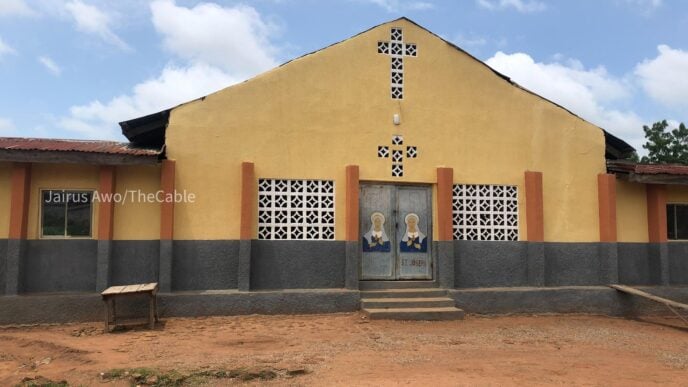In delivering the keynote address at the just- concluded 2025 National Summit of the Local Government Service Commissions (LGSCs), I was compelled to observe the significance of the summit coming on the heels of the 2024 reconvened National Council of the Civil Service Commissions of the federation as well as the Biennial Assembly and Conference of the African Association of Public Service Commissions (AAPSCOMMSs) which held in Nairobi, Kenya, also in 2024.
These meetings and events signal the possibility that the public administration communities of service and practice in Nigeria might be waking up to their gatekeeping responsibilities in a collective bid to strengthen the profession of public administration in Nigeria and on the continent. This is a very good signal. And it is one that the Federal Civil Service Commission is ever ready to partner with the Association of the LGSCs in concretising.
This emerging awareness is crucial given that all across the globe, there is consensus regarding the significance of local governance and the strengthening of democratic governance through the devolution of powers to local authorities. This growing awareness is even more important for developing contexts like Nigeria, where democratic governance must necessarily constitute the means for activating development.
This immediately reveals the ideological dimension of the ongoing discussion in Nigeria around the necessity of reforming the local government as the formidable third tier of democratic government, as well as granting it autonomy to deliver on local and grassroots governance. Successfully reforming the local government is therefore the way to go in placing the grassroots and its potential at the centre of democratic governance in Nigeria.
Advertisement
There is no doubt whatsoever that the grassroots, aside from its democratic potential, also possess the natural resources and the requisite capabilities that could be harnessed to lift millions of Nigerians out of crippling multidimensional poverty. The grassroots possess the social capital that enables the people in the various rural communities to organise themselves around the available resources that could facilitate inclusive growth and development. This could therefore enable the government to mobilise local governance as a complement for achieving democratic governance, as well as consolidating, for example, the sustainable development goals (SDGs).
The implication of all this, and especially of the government’s reform that grants financial autonomy to local government, is that there is now a larger imperative –involving the LGSCs—that focuses on the significance of local governance and its capability readiness for the national development and democratic projects in Nigeria.
The idea of the civil service commission (CSC) came out of the Northcote-Trevelyan civil service reform of the British civil service in 1885. It was meant to serve as the gatekeeping mechanism for preserving and protecting the merit system, professionalism and the vocation of the civil service. Its responsibility is to ensure that the system only recruits, trains and absorbs those who have the public spiritedness which insists on deferred gratification in the service of the public.
Advertisement
In the Nigerian case, and beyond the emergence of the FCSC and CSCs of States, the LGSC came out of the 1976 local government reforms with the constitutional mandate to standardize the administrative and personnel practices, maintain professional standards conducive for efficiency at the local authority level, as well as overseeing manpower planning, assessment of staffing requirements, career management, training and capacity development, and so on. And the most fundamental criterion for evaluating the efficiency and the capacity of the LGSC to not only manage the affairs of the local government is now to also monitor and guarantee the degree of local autonomy enjoyed by the LGAs.
The Local Autonomy Index, for example, provides a barometer that speaks to the level of autonomy enjoyed by any local authority: Is the leadership of local councils locally and freely elected? Is local revenue available for the use of the local governments? Do LGs generate and implement their own budget? Can LGs seek legal redress if any other tier of government breaches its enabling law? Do LGs enjoy administrative autonomy to control their management systems, in terms of the recruitment and appointment of their own staff, etc.?
The autonomy issue intersects the deepening of democratic governance in Nigeria because granting the third tier its governance autonomy implies allowing it to deploy its resources and national revenue accruing to it towards catalysing poverty reduction, wealth creation, and economic development. All these in turn become the bedrock for the transformation of the economic basis of the Nigerian state itself.
Indeed, the Ojetunji Aboyade Committee on Revenue Allocation of 1977, by assigning a share of revenue allocation from the Federation Account to local governments like the other two tiers, had set it in good governance stead to become a focal point of significant development activities that require high-calibre professional personnel to manage. And given the recent Supreme Court judgment on local government fiscal autonomy, there is the serious possibility that an era of robust and vibrant local governance is about to dawn in ways that take the local governments away from their low fiscal responsibility towards a model of developmental efficiency.
Advertisement
Even putting the autonomy issue in this optimistic frame must anticipate serious issues that intersect with the current problems attending the nature and status of the local government as the third-tier of government in Nigeria. One reality is that many of these local government areas were created not because of any concern for administrative viability, but more importantly, to serve political patronage and necessities. In coming to terms with the realisation of local government autonomy in Nigeria, therefore, the LGSC has to first confront structural, systemic and constitutional issues that complicate the possibility of bringing it to pass.
First, there is the acute politicisation of the local government autonomy that hinges on the overlordship of the state government. In other words, there is a constitutional and legal conflict arising between, on the one hand, the guarantee of section 7 of the 1999 Constitution legislating the existence of democratically elected local governments, and on the other hand, the legal capacity of the state government to create laws and policies that regulate the local government system. Second, there is a constitutional ambiguity with regard to the status and role of the local government as the third tier of the federal government, which has been hitherto exploited to facilitate the politicisation mentioned earlier.
Third, and based on the many years of neglect, political patronage and bureaucratic and political corruption, the local government authority has developed a deep-rooted institutional capability and capacity deficit that manifests in the form of poor pay and compensation structure, non-competency-based human resource management standards and procedures, weak or even virtually non-existent internal management control, degraded rating, and more, that together have reduced the local government to the lowest bottom of public perception. Lastly, there is also the conflict of interest and loyalty that result from local government staff who pay allegiance to the state government rather than to the local councils that employ them. This has implications for the possibility of designing and implementing local policies.
The LGSC, therefore, confronts the urgency of supervising the emergence of Nigeria’s own indigenous model of local governance that will, in turn, supervise and harness the grassroots and community-based structures of social capital, networks and subsidiarity as the nodal service delivery points in terms of, for example, community policing, waste management, etc. This will require that the LGSC will also be prepared to service the high-end capacity, capability and professional competence that local autonomy will demand in terms of the management of the local government councils. This now brings us full circle back to the LGSC and its fundamental role in gatekeeping the reform of the local government councils and authorities.
Advertisement
In facilitating its gatekeeping constitutional responsibility, the LGSC first has to manage its own existence and authority placed under the watchful control of the state governments. It is therefore centrally situated at the eye of the storm to mediate the challenge of achieving autonomy. This situation concretises the significance of the LGSC as the structural and administrative node for connecting local governance to democratic governance in Nigeria’s political context. This only then means that for the institution to succeed in its gatekeeping mandate, it demands a deep-seated reconceptualisation of its objectives, mandates and modus operandi.
Reconstituting and reforming the LGSC demands a lot in terms of constitutional enabling and structural capability. This will affect the leadership and stakeholder composition as well as the dynamics of its operations. For instance, the LGSC would have to operate not only with a renewed and redesigned manifest of delegated powers and functions involving local government chairmen and councillors, but it would also need new schedules of duties and responsibilities that connect the local government to the citizens as end users. What then are the key reform requirements that will facilitate this reconceptualisation of the LGSC as a key institution in the transformation of local governance in Nigeria?
Advertisement
Aside from the imperative of restructuring the LGSC to facilitate the emergence of new stakeholders and a robust mandate and modus operandi, the administrative autonomy of the institution must be ensured. This is the crucial first step in the responsibility of enabling it to work towards the re-professionalisation of the local government councils in ways that ensure its efficient productivity. This administrative independence allows it to streamline recruitment, appointment and personnel administration without undue and distracting interference from the state and from the local government leadership. The second most significant reform issue concerns funding. This is where administrative autonomy connects with the fiscal responsibility of the LGSC.
A crucial dimension of its personnel administrative responsibility is manpower training and development. Without these, then the entire gatekeeping architecture collapses. The imperative, confronted by the LGSC, of gatekeeping personnel and human resource function, managing performance improvement and capacity reprofiling demands that the funding necessity must go beyond the meagre allocation that would hitherto accrue from the erstwhile State-Local Government Joint Account. Without a consistent source of significant funding, the significance of the LGSC is crippled.
Advertisement
The importance of the LGSC in the public administration dynamics of local government and local governance in Nigeria cannot be underestimated. In constitutional and political terms, it is caught in a dilemma between what the Constitution mandates and what the reality of state legal capacities demand. It requires a formidable reconceptualisation in ways that will enable it to give birth to a developmental model of local governance that Nigeria urgently needs to capacitate its democratic governance and national development.
A good starting point is for the federal government to revisit the constitutional measures for inter-governmental relationship and partnership that make the state government a key stakeholder in local governance without in any way undermining the crucial local government autonomy as the third tier of government. This constitutional vigilance of the federal government, armed with constitutional safeguards, will ensure that the LGSC becomes the structural negotiation of a win-win relationship between the state and the local government to facilitate the emergence of the grassroots as a formidable site for progressive development that empowers the citizens and strengthens Nigeria’s democracy.
Advertisement
(Being the text of the keynote address delivered at the 2025 National Summit of the Association of Local Government Service Commissions of Nigeria held in Abuja on the 15th of October, 2025)
Olaopa is a professor of public administration and the chairman of the Federal Civil Service Commission, Abuja.
Views expressed by contributors are strictly personal and not of TheCable.










